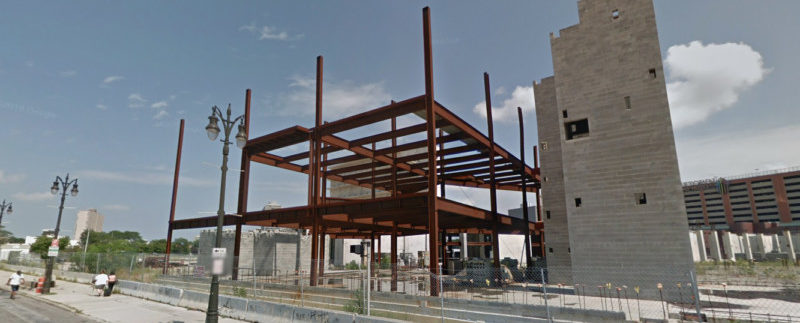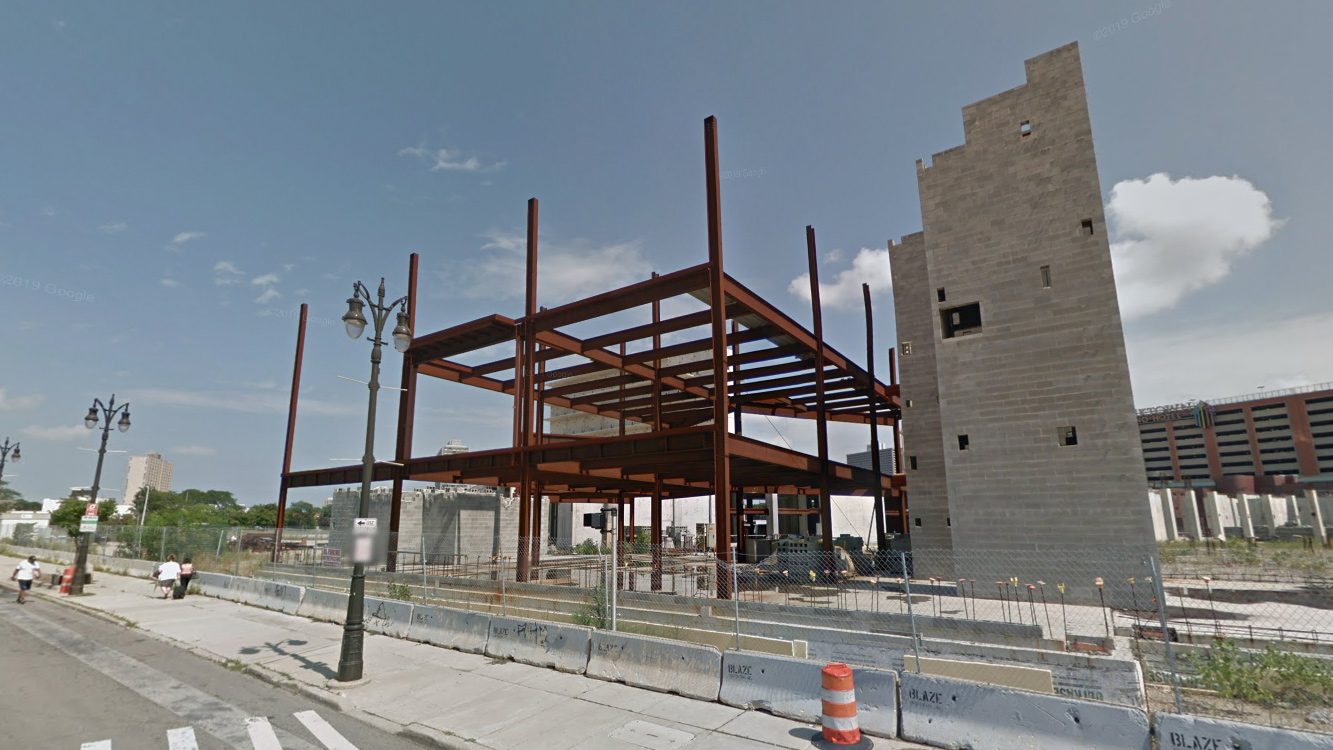To Help Revive Downtown, Detroit Looks Beyond a Failed Jail

To Help Revive Downtown, Detroit Looks Beyond a Failed Jail

Google Maps
DETROIT—A site on the edge of this city’s downtown sat for years with a half-built jail behind a chain-link fence, a remnant of the city’s prebankruptcy corruption and mismanagement.
Now, it is getting new life.
On Wednesday, city leaders plan to unveil a $300 million project on 14 acres that will include a University of Michigan research and education center for 1,000 students, a residential building, an incubator for startup companies and ultimately a hotel and conference center.
“Instead of 1,000 prisoners, we get 1,000 graduate students,” said Mayor Mike Duggan in an interview.
The project still needs some city and Wayne County approvals, but officials say construction could begin as soon as the end of next year.
Stephen Ross, chairman of the real-estate development company Related Cos. and principal owner of the Miami Dolphins football team, pitched the project to the mayor last summer by phone. He then recruited University of Michigan President Mark Schlissel.
Detroit lost a quarter of its population between 2000 and 2010, and it declared bankruptcy in 2013. The jail project faltered after allegations that Wayne County officials lied about construction costs.
More recently, the city has been on the rebound, and the Detroit-Warren-Livonia area’s August unemployment rate of 4.5% is less than a third of the level a decade ago. Many employers now say they have a shortage of workers with the right skills.
Mr. Ross said the concept for the innovation hub came from his experience on the board of Cornell Tech, a technology, business, law and design campus on Roosevelt Island in New York City. He has maintained ties to Detroit after living there as a child and graduating from the University of Michigan and becoming its biggest donor.
“Today, technology is what everyone is looking for,” Mr. Ross said. “This is a way of really retaining talent in Detroit.”
Mr. Ross said he would make a contribution to the new innovation hub, but he declined to say how much.
Other cities have tried to build incubators to reinvigorate downtowns and attract startups, sometimes with mixed results.
In addition to a 190,000-square-foot core academic building, there will be housing for graduate or midcareer students. Mr. Schlissel said professors have been thinking about how to develop courses in collaboration with companies, from entrepreneurship to cybersecurity.
As well as auto makers and financial companies, Microsoft Corp., Waymo, LinkedIn Corp. and other tech companies have offices in Detroit. “As opposed to coming to Ann Arbor and getting an M.B.A., we can work with the business community to design novel curricula,” Mr. Schlissel said.
Detroit has already had some success fostering new companies. A few blocks from the planned innovation hub, Detroit Venture Partners already hosts half a dozen startups in an open-floor office. A notable success is an e-commerce company called StockX, which reached a $1 billion valuation in June.
The new buildings will replace the half-built jail that became known as the “fail jail” and was torn down in 2018 after costs ballooned and about $160 million had been spent. Construction stopped in 2013 after cost overruns.
“It was an everyday reminder of the county’s worst days,” said Wayne County Executive Warren Evans. “From a psychological perspective, tearing that old jail site down was a major relief.”
Mr. Evans said that he doesn’t want the new set of university buildings to be “a stand-alone pristine entity” and that he would like to find ways to work with other local colleges.
A new jail will be built on a site outside downtown, along with headquarters for the county prosecutor and sheriff. The county will pay $380 million of the total $530 million cost of that project, and neither the city nor the county will contribute any money to the new innovation hub.
Bedrock, the real-estate company owned by Dan Gilbert, founder and chairman of Quicken Loans, is building the innovation hub. Mr. Gilbert’s Rock Ventures will pay the remaining $150 million on the new criminal justice complex and bear any cost overruns of that project.
Mr. Gilbert, who has led the redevelopment of much of the city’s downtown, opposed building the jail on the site. He proposed putting a professional soccer team there at one point.
Today, about half of the 14-acre site has been cleared and is covered with gravel. It sits near the city’s professional sports venues as well as the historic Greektown neighborhood and is just a few blocks from the heart of downtown.
The post To Help Revive Downtown, Detroit Looks Beyond a Failed Jail appeared first on Real Estate News & Insights | realtor.com®.
Source: Real Estate News and Advice – realtor.com » Real Estate News
